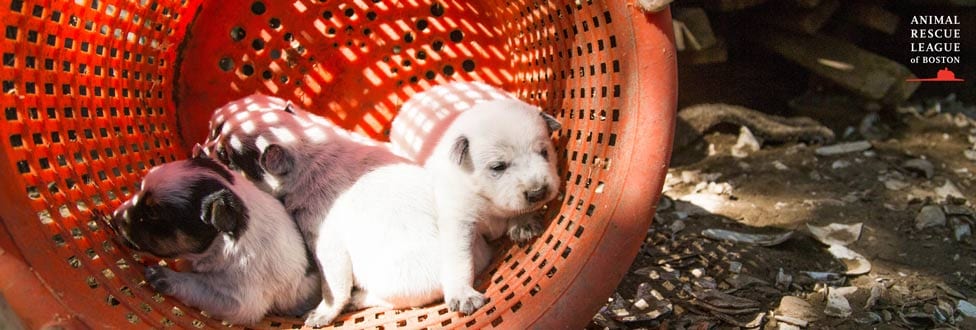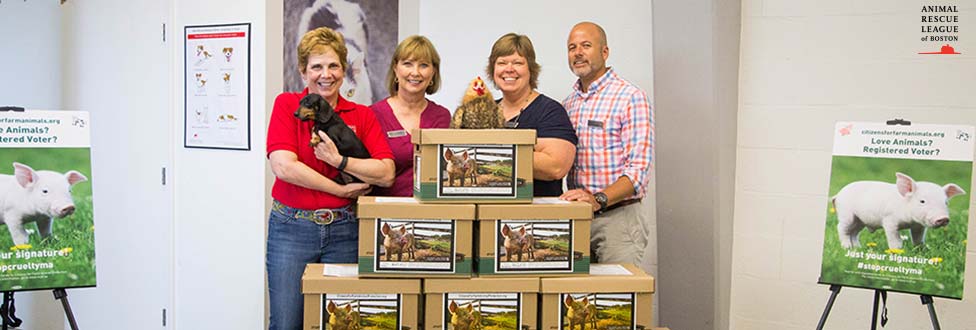Update on Westport Farm Animals
Over 1,400 animals found on 70-acre property
From July 19 through August 6, 2016, the Animal Rescue League of Boston (ARL) worked around-the-clock to assist in the rescue, removal, and specialized emergency veterinary treatment, of over 1,400 animals from the Westport, MA farm.

Over 1,400 animals were found on 70-acre Westport, MA farm since the ARL Boston first arrived on the scene on July 19.
Many species of animals were in dire need of assistance, including goats, pigs, horses, dogs, cats, rabbits, cattle, and birds.
While on scene, Lt. Alan Borgal, ARL’s Director of Law Enforcement, and Dr. Kyle Quigley, ARL’s Lead Community Veterinarian, led the efforts to address and provide for the well-being and care of many of the animals.
All because of the generous help of many individuals and organizations, the ARL was able to bring the animals to safety by relocating them to farms, sanctuaries, shelters, and foster homes. And, as the many animals in the ARL’s care heal, they are being connected with loving families.
Thank you to everyone who supported the ARL during this critical time to make our important work possible!
Help stop cruelty and neglect at its root cause…
Every animal deserves a safe and healthy home, which is why we must continue our important work to ensure that extreme cases of animal cruelty and neglect never happen.
It is only with your support that we can eliminate the conditions that lead to animal abuse – this is your opportunity to help animals in need.
Please make a gift today to stop animal cruelty at its root cause.















 Creates a new law to address pets in vehicles – This will be familiar to all who are aware of ARL’s
Creates a new law to address pets in vehicles – This will be familiar to all who are aware of ARL’s  (S. 2370) – “An Act Relative to Protecting Puppies and Kittens”
(S. 2370) – “An Act Relative to Protecting Puppies and Kittens”  (S. 2375) – An Act protecting abandoned animals in vacant properties
(S. 2375) – An Act protecting abandoned animals in vacant properties 

